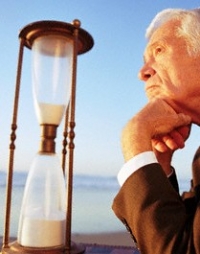In The News:

Surgeon Finds Validation in Prostate Cancer Study
Prostate cancer surgeon, Arnon Krongrad, MD said observations reported at the 2006 World Congress of Endourology validate reports made by individual patients: urinary and erectile function can return slowly after radical prostate cancer surgery. The observations suggest that urinary and erectile functions may continue to improve for two years and more after laparoscopic radical prostatectomy (LRP), a minimally invasive form of prostate surgery.
"These observations are important for two reasons. First of all, patients become anguished by early dysfunction. Knowing that function sometimes returns slowly, not quickly, offers hope, which can help reduce the emotional impact of the dysfunction. Perhaps more subtle, but as important, is the observations’ implicit warning: be slow to apply irreversible, risky, and/or painful remedies, as these may be unnecessary," said Dr. Krongrad. "In recovery from prostate cancer surgery, patience can be a virtue."
Unlike the open radical retropubic prostatectomy, which requires a large abdominal incision, the LRP is performed through tiny punctures. The LRP is associated with profound reductions in bleeding, pain, and time for convalescence. Few studies have tracked recovery of urinary and erectile function so long after any form of prostate cancer surgery.
According to the study, 94 percent of men who had the LRP were using one or no incontinence pads per day at two years after surgery, and 74 percent of those who were potent before the procedure reported having intercourse after two years. The data show continuing improvement from six months to two years after surgery.
Duke University psychiatrist Nathan Strahl, MD, PhD adds: "Dr. Krongrad did my LRP in November, 2003. My immediate recovery from LRP was wonderful. I had little to no pain and returned to work in 4 days. Still, in the first year, I had moderate incontinence and was unable to achieve spontaneous erections. Such states of dysfunction are associated with distress, which in my case was ameliorated by reports of other men who had recovered late. Now, three years after LRP, I am 98% continent. Even though I had no spontaneous erections during the first year after LRP, I have gradually and continually improved to have normal erections just like before the surgery.
Occasional nocturnal erections at times even wake me up! I had considered surgical remedies after a year and today am glad I waited."
Adds Dr. Krongrad: "We do not understand why different functions recover at different rates. Why does urinary dysfunction linger after patients are otherwise fully functional? Why does erectile function return almost always only after urinary function has returned? We don’t know. What we do know is that in many cases, they return and sometimes slowly. The message is that in the recovery, go slowly. First, do no harm."
Arnon Krongrad, MD coauthored the technical manual on LRP and introduced it to the United States in 1999. The Krongrad Institute is the world’s only private program that is exclusively devoted to LRP. Dr. Krongrad received his medical diploma from Columbia University.
Nathan Strahl, MD, PhD is clinical associate professor of psychiatry at Duke University Medical Center.
download as pdf 
Notice: Undefined index: r in /home/eb4nhwo80k78/public_html/classes/site.php on line 321
Notice: Undefined variable: prev in /home/eb4nhwo80k78/public_html/classes/site.php on line 444
Notice: Undefined index: r in /home/eb4nhwo80k78/public_html/classes/site.php on line 321
Notice: Undefined variable: prev in /home/eb4nhwo80k78/public_html/classes/site.php on line 444


